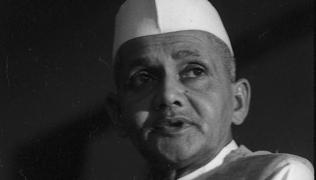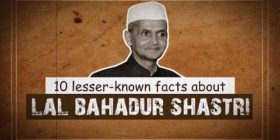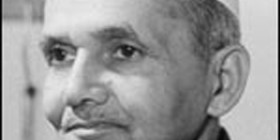This year has seen the publication of several books and numerous articles devoted to a prime minister previously forgotten or ignored: PV Narasimha Rao. Despite enjoying a full five-year term in office, despite overseeing a major and defining shift in economic policy, despite effecting innovations in foreign policy such as the ‘Look East’ strategy, Narasimha Rao had thus far not got his due from scholars and commentators on Indian politics. There were two reasons for this. One was his conspicuous failure to prevent the destruction of the Babri Masjid and the communal riots that followed, a failure that in the eyes of many nullified his other achievements.
A second and perhaps more important reason for the neglect of Rao was that he had fallen foul of Sonia Gandhi. After she became Congress president in 1998, Mrs Gandhi systematically erased Rao from the memory of the party and its members. To be sure, this was part of a wider effort to define the Congress as the property of a single family. While the achievements (real and imagined) of Nehru, Indira and Rajiv were magnified and broadcast, those of other Congress leaders were underplayed. In this rebranding the reputations of many remarkable Congressmen (and Congresswomen) suffered, but Rao’s perhaps most of all.
The attention now belatedly paid to Rao is welcome. But the time has also come to revisit the legacy of a prime minister even more considerable than Rao, likewise a lifelong Congressman, who too has been largely erased from his party’s history by the family that has come to dominate it.
This is Lal Bahadur Shastri. Not long after Shastri became prime minister, he stopped in Karachi, then the capital of Pakistan, while on his way home from Cairo. He was met at the airport by President Ayub Khan, who, noticing his tiny frame and 26-inch chest, wondered how such a little man could rule such a large nation. It is said that this sight of Shastri in the flesh convinced Ayub (himself an Army General) that the time was ripe for a fresh incursion into Kashmir. He was convinced that the new leader of India would not be able to effectively defend his country when war came.
Ayub was mistaken. For, with his outstanding defence minister, YB Chavan, Shastri had already overseen the long overdue modernisation of our armed forces. In August 1965 Pakistan sent infiltrators into Kashmir, following this in early September with a major armed offensive. The Indian Army fought bravely, but the pressure on them was intense. In an inspired move, the prime minister ordered a fresh front to be opened in the Punjab, which immediately put the Pakistanis back on the defensive. Under Shastri’s leadership, the armed forces acquitted themselves extremely well in the war of 1965, thus erasing memories of their ignominious defeat at the hands of China three years previously.
The slogan most associated with Shastri was ‘jai jawan, jai kisan’. For Nehru’s successor keenly understood the link between self-sufficiency in food and self-reliance in politics. It was Shastri who, along with another remarkable cabinet minister, C Subramaniam, laid the foundations of the Green Revolution, although it was Indira Gandhi who came to claim the credit, since the gains from the new strains of wheat and rice took a decade to fructify, by which time Shastri, sadly, was dead.
There are many reasons to remember Shastri now, when the agrarian sector is urgently in need of renewal, and when tensions with our always difficult neighbour are once more on the rise. Shastri was a self-effacing man, who wished to be remembered by his actions rather than his words. But when he did speak, he chose his words very wisely, never more so than in a speech he delivered at Delhi’s Ram Lila Maidan in late September 1965, shortly after a cease-fire had been brokered by the United Nations.
The BBC had described the conflict that had just ended as a war between ‘Hindu India’ and ‘Muslim Pakistan’. In his speech in the Ram Lila Maidan, Shastri refuted this pernicious allegation. The meeting was chaired by a veteran nationalist who happened to be a Muslim by birth. The speaker before Shastri was a Anglo-Indian lawyer who had been a prominent member of the Constituent Assembly. When it came to his turn to speak, the prime minister drew the crowd’s attention to the company he was then proudly keeping. So Shastri said: ‘Mir Mushtaq who is presiding over this meeting is a Muslim. Mr Frank Anthony who has addressed you is a Christian. There are also Sikhs and Parsis here. The unique thing about our country is that we have Hindus, Muslims, Christians, Sikhs, Parsis and people of all other religions. We have temples and mosques, gurdwaras and churches. But we do not bring all this into politics… . This is the difference between India and Pakistan. Whereas Pakistan proclaims itself to be an Islamic State and uses religion as a political factor, we Indians have the freedom to follow whatever religion we may choose [and] worship in any way we please. So far as politics is concerned, each of us is as much an Indian as the other’.
The attention recently paid to PV Narasimha Rao was because this year marks the 25th anniversary of the liberalisation of the Indian economy. However, the speech of Shastri I have just quoted is not just timely, but also timeless. It inevitably comes to mind when there are troubles with Pakistan. Yet it remains compellingly relevant in times of peace too. If India is to survive and thrive, religion must never be a factor in the political life of the Republic.
The views expressed are personal.





Leave a reply